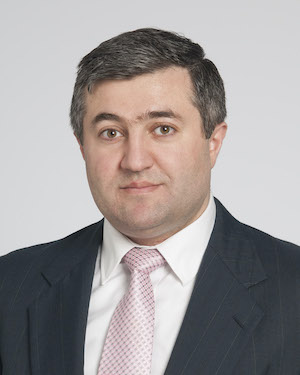Novel study designed to correct genetic abnormalities of red blood cells
Cleveland Clinic researchers are enrolling patients in a clinical trial that aims to work toward a cure for sickle cell disease, by changing the patient’s genetics. Sickle cell disease, a genetic blood disorder, is a painful and debilitating condition for which there are few approved therapies.
While there are an estimated 1 to 3 million people in the U.S. who have the sickle cell trait, there are only about 100,000 people with sickle cell disease. Sickle cell trait and the disease are found more often in certain ethnic groups, including African Americans. In the United States, about 1 in 365 African American babies have sickle cell disease.
The multicenter study will evaluate the safety and effectiveness of a single dose of EDIT-301, an experimental one-time gene editing cell therapy that modifies a patient’s own blood-forming stem cells to correct the mutation responsible for sickle cell disease, according to a news release.
The study will initially enroll 40 adult patients ages 18 to 50 with severe sickle cell disease, with the possibility of expansion to include adolescents. Patients will be monitored closely after treatment for up to two years. The initial study enrollees will be volunteers drawn from the Clinic's current patient population, according to an email response from a hospital spokesperson.
“Gene therapy is an incredible technology that works by replacing or inactivating disease-causing genes, said Rabi Hanna, M.D., director of the pediatric blood and bone marrow transplant program at Cleveland Clinic, said in the release.

Rabi Hanna, M.D., is lead investigator of sickle cell treatment study underway at Cleveland Clinic.
“In this study, the gene therapy will introduce healthy genes into the body with the goal of correcting genetic abnormalities of red blood cells,” said Hanna, principal investigator of the trial, in a statement. “By enabling the cells to produce more fetal hemoglobin, this treatment has the potential to cure sickle cell disease in a precise way.”
This is the first time a novel type of CRISPR gene editing technology – known as CRISPR/ CA12 is being used in a human study to alter the defective gene, according to the release.
During the study patients’ stem cells are collected for gene editing in a laboratory. Patients then are treated with chemotherapy to destroy remaining bone marrow to make room for the repaired cells which are infused back into the body.
Sickle cell disease is an inherited blood disorder that leads to the production of abnormal hemoglobin, which is a red protein responsible for transporting oxygen in the blood. Normal red blood cells are round and can move through small blood vessels to deliver oxygen. However, in people with sickle cell disease, the genetic change in DNA causes a chemical alteration in hemoglobin and alters the shape of red blood cells into a sickle, blocking them from passing through narrow blood vessels. They can clog or break apart which also leads to decreased red blood cell life, and increased iron storage in the liver and heart. This can cause conditions such as liver fibrosis, liver failure, stroke, cardiomyopathy and heart failure along with severe pain.
For most people with the condition, medications can modify disease severity and treat symptoms; however, despite current therapies, the average life of a sickle cell patient, is in the mid 40’s. A blood or marrow transplant can cure sickle cell disease, but the transplant often requires a sibling donor and has the potential for severe graft versus host disease, which is when donor bone marrow or stem cells attack the recipient.
“New treatments are critical for people who have sickle cell disease. Despite the fact that it has been more than 100 years since its discovery there have been only a few medications approved in the last 50 years for sickle cell disease,” said Dr. Hanna. Until now, we didn’t have the technology to work with to create a possible cure for this devastating disease.”
• • •• • •
Last updated at 1507 hours on May 27, 2021.













